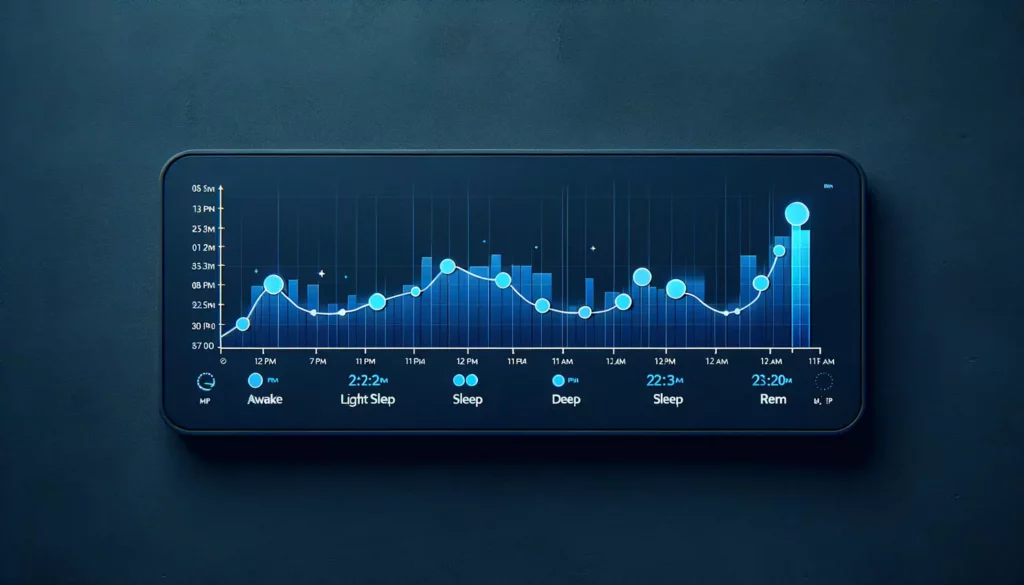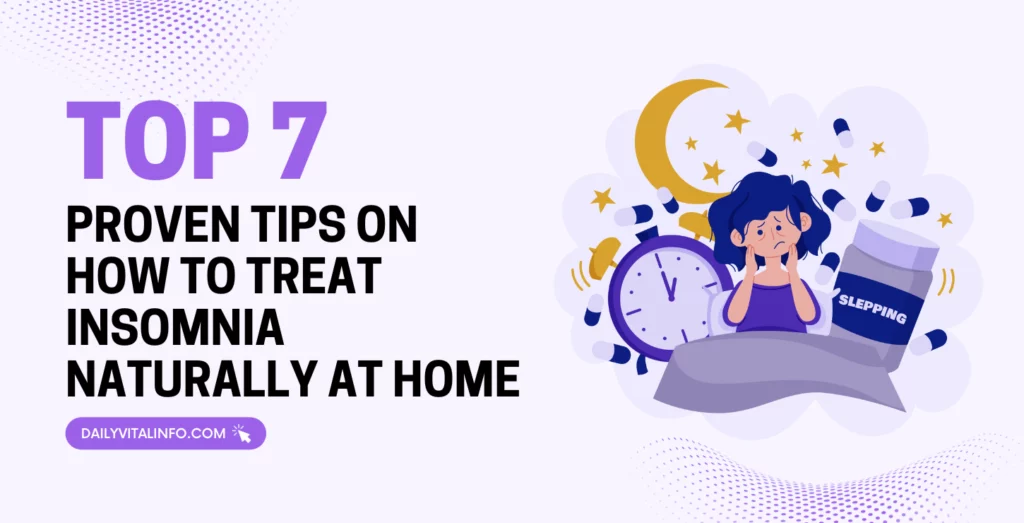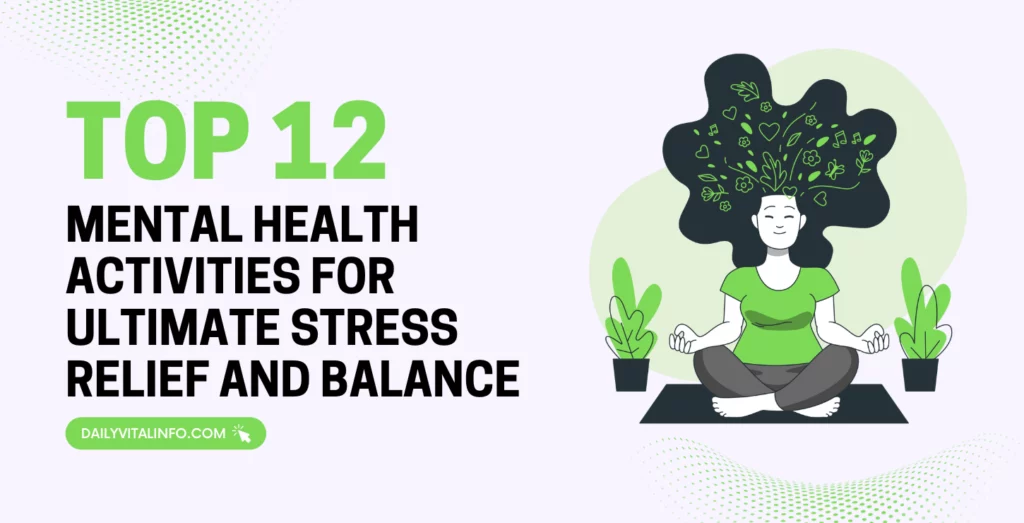The best time to sleep and wake up is to go to bed earlier and wake up in the early morning hours, according to science. This sleep pattern aligns with our biological circadian rhythm and improves sleep quality.
Finding the optimal bedtime and wake-up time based on individual age and sleep needs is essential. Adhering to a consistent sleep schedule can improve overall sleep health and well-being.

What is circadian rhythm?
The circadian rhythm is a biological process that follows a 24-hour cycle and regulates essential bodily functions, such as sleep, body temperature, hormone production, and alertness. External cues, such as light and darkness, primarily influence it, which helps synchronize our internal clock with the natural day-night cycle.

Research suggests that the circadian rhythm is primarily regulated by a region in the brain called the suprachiasmatic nucleus (SCN), which responds to the eyes’ light signals. When exposed to bright light, the SCN sends signals to suppress melatonin production, a hormone promoting sleepiness, and to increase alertness and wakefulness.
Understanding Circadian Rhythm
Discovering the fascinating world of circadian rhythms unveils the secrets to finding the best time to sleep and wake up. By understanding our biological patterns, we can align our sleep schedule to optimize our well-being and productivity.
The human body operates on a natural 24-hour internal clock called circadian rhythm. This internal clock regulates various physiological processes, including our sleep-wake cycle. Understanding the circadian rhythm is crucial in determining the best time to sleep and wake up, as it directly influences our overall sleep quality and energy levels throughout the day.
How does it affect our sleep-wake cycle?
The circadian rhythm plays a crucial role in determining our sleep-wake cycle. It helps regulate the timing and duration of our sleep by influencing the release of sleep-promoting hormones, such as melatonin, in response to changes in light and darkness.
During the evening, as darkness sets in, the SCN signals the pineal gland to release melatonin, which makes us feel drowsy and prepares our bodies for sleep. This explains why we naturally feel sleepy and ready for bed when it gets dark outside.
On the other hand, when the morning light enters our eyes, it signals the SCN to suppress melatonin production, making us feel more awake and alert. This natural response to light helps us wake up and start our day with energy and focus.
Understanding the interplay between our circadian rhythm and external cues, such as light exposure, can help us optimize our sleep-wake cycle. We can ensure better sleep quality, daytime alertness, and overall well-being by aligning our sleep schedule with our internal clock.
Remember that each person’s circadian rhythm may vary slightly regarding their preferred sleep-wake schedule. Factors such as age, lifestyle, and individual preferences also play a role in determining the ideal time to sleep and wake up. However, staying attuned to your body’s natural circadian rhythm can provide valuable insights into finding your optimal sleep schedule.
The importance of sleep patterns
The best time to sleep and wake up, according to science, is to go to bed earlier and wake up in the early morning hours. This sleep pattern aligns with our biological clock and ensures optimal sleep quality and well-being.
Why is having a consistent sleep pattern important?
A consistent sleep pattern is crucial in maintaining overall health and well-being. When we go to sleep and wake up simultaneously every day, our body establishes a natural sleep-wake cycle, also known as the circadian rhythm. This rhythm governs various physiological processes, including hormone production, temperature regulation, and brain activity. Adhering to a consistent sleep pattern aligns with our body’s internal clock and promotes optimal functioning.
How does it impact our overall health?
Having a consistent sleep pattern has profound effects on our overall health. Here’s a closer look at some of the key benefits:
- Regulated Hormones: A consistent sleep pattern helps regulate the production of essential hormones, such as melatonin and cortisol. Melatonin, often called the sleep hormone, regulates our sleep-wake cycle and ensures that we feel sleepy at the right time. Cortisol, on the other hand, is a stress hormone that should be lowest during nighttime to promote restful sleep.
- Improved Cognitive Function: Adequate and regular sleep is essential for optimal cognitive function. When we establish a consistent sleep pattern, our brain gets the rest it needs to consolidate memories, process information, and improve learning and problem-solving abilities.
- Enhanced Mood and Emotional Well-being: Lack of sleep or irregular sleep patterns can significantly impact our mood and emotional well-being. Maintaining a consistent sleep routine allows our body to regulate mood-regulation neurotransmitters such as serotonin and dopamine. This can lead to improved overall emotional well-being and a more stable mood.
- Boosted Immune System: A consistent sleep pattern strengthens our immune system, making us less susceptible to illnesses and infections. During sleep, our body produces and releases cytokines, which help fight off viruses and bacteria. Regular sleep ensures optimal production and release of cytokines, enhancing our immune response.
In conclusion, establishing and maintaining a consistent sleep pattern is crucial for our overall health and well-being. By aligning with our body’s natural circadian rhythm, we promote hormonal balance, support cognitive function, enhance mood and emotional well-being, and strengthen our immune system. Prioritizing our sleep patterns can have a profound positive impact on our daily lives and long-term health.
Finding your ideal bedtime
Determining your ideal bedtime can be challenging, but science suggests that going to bed earlier and waking up early in the morning is best. This aligns with our natural circadian rhythm and can improve overall sleep patterns and health.
Factors to consider when determining your optimal bedtime
Finding your ideal bedtime can significantly improve the quality of your sleep and overall well-being. However, it’s essential to consider a few factors that can influence what time you should go to bed each night.
- Sleep Cycle: The cycle consists of several stages, including REM (rapid eye movement) and non-REM sleep. Each cycle lasts about 90 minutes, and it’s recommended to complete at least five to six cycles per night for optimal rest. Therefore, calculating your bedtime based on sleep cycles can help you feel refreshed.
- Age: Different age groups require varying amounts of sleep. For infants and young children, adequate sleep is crucial for growth and development. As we age, our rest needs decrease, with adults generally requiring around 7-9 hours of sleep per night. It’s essential to consider your age when determining your ideal bedtime, as it can affect your sleep duration and quality.
- Lifestyle and Schedule: Your daily routine and habits can influence your bedtime preferences. Factors such as work schedule, social commitments, and personal preferences play a role in determining when you feel most tired and ready for bed. Analyzing your daily activities and obligations can help establish a consistent and suitable bedtime.
- Chronotype: Everyone has a unique chronotype, which refers to their internal biological clock and preference for being awake or asleep at specific times of the day. Understanding your chronotype can guide you in finding the ideal bedtime that aligns with your natural sleep-wake patterns.
The role of age in determining the best time to sleep
Infants and Children: The sleep needs of infants and children differ significantly from adults. Newborns sleep approximately 14-17 hours a day, with their rest distributed throughout the day and night. As infants grow, they gradually transition to more consolidated nighttime sleep, usually around 4-6 months. Young children need around 9-12 hours of sleep at night, plus additional daily naps to support their physical and cognitive development.
Teenagers: Adolescence is a period marked by significant changes in sleep patterns. Hormonal shifts and changes in the circadian rhythm cause many teenagers to experience a delayed sleep phase, making it difficult for them to fall asleep early. Most adolescents function optimally with 8-10 hours of sleep per night, but many teenagers find it challenging to get enough sleep during the week due to early school start times.
Adults: Adults generally need 7-9 hours of sleep per night to function at their best. However, individual sleep requirements may vary. Some adults may thrive with slightly less sleep, while others may require closer to 9-10 hours. The ideal adult bedtime may also depend on personal preferences, work schedules, and family obligations. It’s crucial to recognize your sleep needs and adjust your rest accordingly.
Older Adults: As we age, our sleep patterns tend to change. Older adults often experience more fragmented sleep, frequent awakenings, and a shift towards earlier bedtimes and wake-up times. While the total sleep time may be slightly reduced, it’s still essential for older adults to prioritize quality sleep and establish a consistent sleep schedule.
Top 12 Mental Health Activities for Ultimate Stress Relief and Balance
5 Proven Home Remedies for Root Cavity Treatment – Quick Relief!
Unlocking Your Optimal Wake-up Time
Unlocking Your Optimal Wake-Up Time – Discover the best time to sleep and wake up for optimal productivity and health. Aligning with your biological sleep patterns can improve sleep quality and overall well-being.
Factors to consider when determining your optimal wake-up time
Choosing the right wake-up time can significantly impact your overall well-being and productivity. However, finding your optimal wake-up time can be a personal journey that requires consideration of various factors:
- Age: Different age groups have different sleep needs. For example, teenagers require more sleep than adults, and their wake-up time may differ.
- Sleep cycles: Understanding your sleep cycles can help determine the best wake-up time. Waking up during the lightest sleep phase ensures you feel refreshed and energized.
- Work schedule: Consider your work or school schedule when determining your wake-up time. It’s essential to align your sleep routine with your daily commitments to maintain consistency.
- Personal preferences: Take into account your personal preferences and lifestyle. Some individuals are naturally early risers, while others thrive in the late hours. Find what suits you best.
- Health considerations: Certain health conditions or medications may impact your sleep patterns. Consult with a healthcare professional if you have any concerns.
The impact of waking up at the right time on productivity and energy levels
Waking up at the right time can profoundly impact your productivity and energy levels throughout the day. When you align your wake-up time with your body’s natural circadian rhythm, you benefit from:
- Increased alertness: Waking up at the optimal time enhances alertness and mental clarity, allowing you to tackle tasks more effectively.
- Improved mood: Starting your day off right sets a positive tone for the rest of the day. Waking up at the right time can help regulate your mood and promote a happier mindset.
- Higher productivity: Your mind and body are primed for peak performance by waking up at the optimal time. This increases productivity, allowing you to make the most of your day.
- Enhanced energy levels: Waking up in sync with your body’s sleep-wake cycle ensures you feel energized and rejuvenated. Say goodbye to grogginess and hello to sustained energy throughout the day.
- Established routine: Consistently waking up at the right time helps establish a healthy sleep routine, improving the quality and duration of your sleep.
Understanding the factors influencing your optimal wake-up time and recognizing their impact on your productivity and energy levels can revolutionize your daily routine. By unlocking your optimal wake-up time, you allow yourself to start each day with a renewed sense of vitality and purpose.
Tips for maintaining a healthy sleep schedule
Maintaining a healthy sleep schedule is crucial; the best time to sleep and wake up varies for individuals. According to scientific research, it is ideal to go to bed earlier and wake up in the early morning hours, aligning with our natural biological patterns.
A personalized sleep calculator can help determine optimal bed and wake-up times based on age and individual needs.
Creating a bedtime routine
Creating a consistent bedtime routine is essential for maintaining a healthy sleep schedule. An exercise helps signal your body that it’s time to wind down and prepare for sleep. Some practical bedtime routine activities include:
- Reading a book or listening to calming music
- Taking a warm bath or shower
- Practicing relaxation exercises, such as deep breathing or meditation
- Avoiding electronic devices at least an hour before bed
The importance of a sleep-friendly environment
The environment in which you sleep plays a significant role in the quality of your sleep. Creating a sleep-friendly environment can help improve the duration and depth of your sleep. Here are some ways to make your bedroom more sleep-friendly:
- Keep your bedroom calm, quiet, and dark.
- Invest in a comfortable mattress and pillows.
- Use curtains or blinds to block out external light
- Avoid using electronic devices in the bedroom
Sleep schedule calculator
You can use a sleep schedule calculator to determine the best time to sleep and wake up according to your needs. These calculators consider your desired wake-up time and sleep cycle duration to suggest an optimal bedtime. By following a consistent sleep schedule, you can help regulate your body’s internal clock and improve the quality of your sleep.
Implementing healthy sleep habits
In addition to establishing a bedtime routine and creating a sleep-friendly environment, there are several other healthy sleep habits you can incorporate into your daily life:
- Avoid consuming caffeine, nicotine, and alcohol close to bedtime
- Engage in regular exercise, but avoid exercising too close to bedtime
- Try to maintain a consistent sleep schedule, even on weekends
- Avoid heavy meals and excessive fluids before bed
- Manage stress through relaxation techniques
FAQ:
What Is The Best Time To Go To Sleep And Wake Up?
The best time to sleep and wake up is to go to bed earlier and wake up in the early morning hours. This aligns with our biological sleep patterns and is ideal for our circadian rhythm. Finding the proper bedtime can vary based on age and individual needs.
What Time Is The Healthiest Time To Wake Up?
The healthiest time to wake up is early morning, ideally before bed. This aligns with our biological sleep patterns and can contribute to overall well-being.
Is 10 pm To 4 am Enough Sleep?
Getting 6 hours of sleep from 10 pm to 4 am is insufficient. Ideally, people should go to bed earlier and wake up in the early morning hours to match their biological sleep patterns. This ensures a better quality of sleep and overall well-being.
What Is The Scientifically Best Time To Sleep?
The scientifically best time to sleep is to go to bed earlier and wake up early. This matches our biological sleep patterns and promotes better overall sleep quality.
Conclusion
The best time to sleep and wake up, according to science, is to go to bed earlier and wake up in the early morning hours. This aligns with our natural circadian rhythm and sleep cycle. While there is no one-size-fits-all bedtime, finding the optimal sleep schedule based on age and individual preferences is key.
So, listen to your body and establish a consistent sleep routine for better health and well-being.


